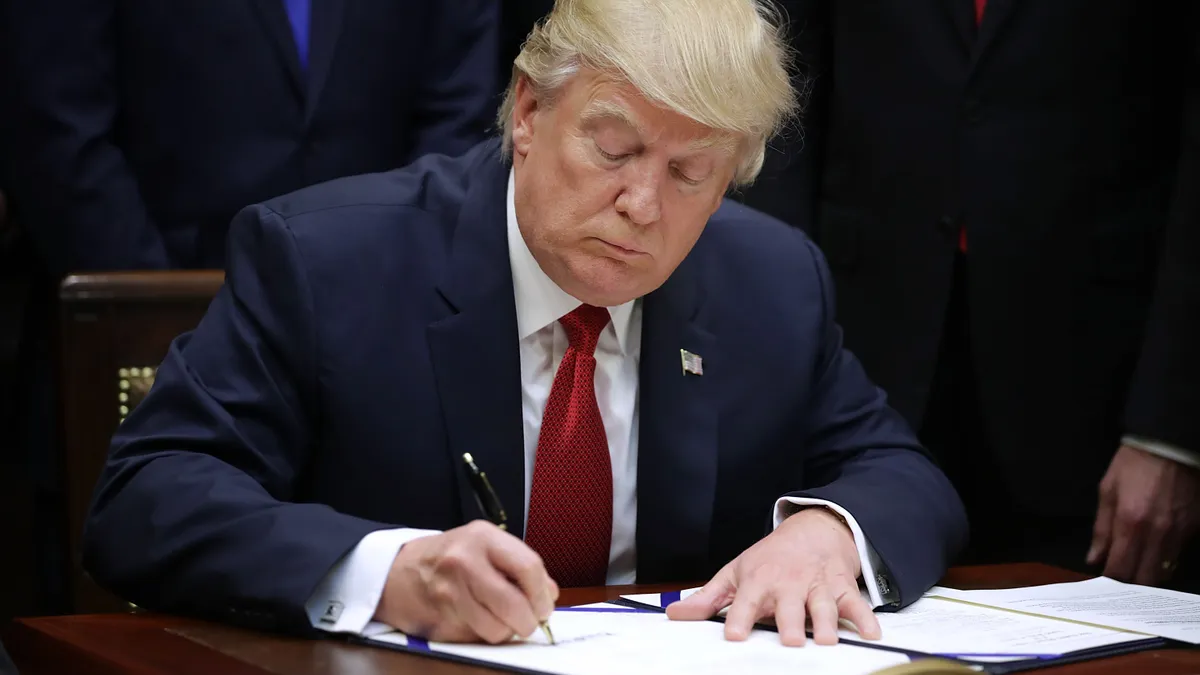Dive Brief:
- President Trump signed a "Memorandum on Combating Trafficking in Counterfeit and Pirated Goods" Wednesday to improve coordination within the federal government in combating counterfeit goods. The memorandum requires the delivery of a report with recommendations within 210 days. The Secretaries of Homeland Security and Commerce, the Attorney General, the Director of the Office of Management and Budget and several other White House officials will be responsible for delivering the report.
- On a call with reporters upon the publication of the memorandum, director of the White House National Trade Council Peter Navarro specifically named Alibaba, Amazon and eBay as examples of marketplace sites requiring greater scrutiny, reported CNN.
- The report should paint a clear picture of the extent to which online marketplaces contribute to the proliferation and trade of counterfeit goods and evaluate the policies of such sites and the relevant government enforcement bodies for areas of improvement.
Dive Insight:
Counterfeits are growing quickly as global small parcel volume increases. Counterfeit and pirated goods totaled an estimated $509 billion (3.3% of global trade) in 2016, according to the Organization for Economic Cooperation and Development (OECD).
Navarro reportedly called the memorandum a "warning shot" for e-commerce marketplaces, threatening if these sites can't effectively self-regulate, the government will do it for them. A starting point, he suggested, is to lower the minimum value of a parcel that triggers more disclosure requirements. Packages declared to be worth less than $800 receive little scrutiny today, Navarro explained to reporters.
Beyond requesting legislative fixes to the counterfeit problem, the memorandum focuses on two other areas: enforcement and data.
It directs a broad look at the path of counterfeit goods to stop their flow with "enhanced enforcement actions."
"The report should address the practices of counterfeiters and pirates, including their shipping, fulfillment, and payment logistics, and assess means of mitigating the factors that facilitate trafficking in counterfeit and pirated goods," the memorandum reads.
The document also puts strong emphasis on evaluating the available data around counterfeits, requesting recommendations on what further data to gather and how to more effectively share it among departments.
It isn't only up to the the U.S. to stamp out this growing menace. The OECD found each point in a parcel's path would need to be in on the effort. According to the memorandum, cooperative efforts with "third-party intermediaries, including online third party marketplaces, carriers, customs brokers, payment providers, vendors, and others involved in international transactions" are already underway.














